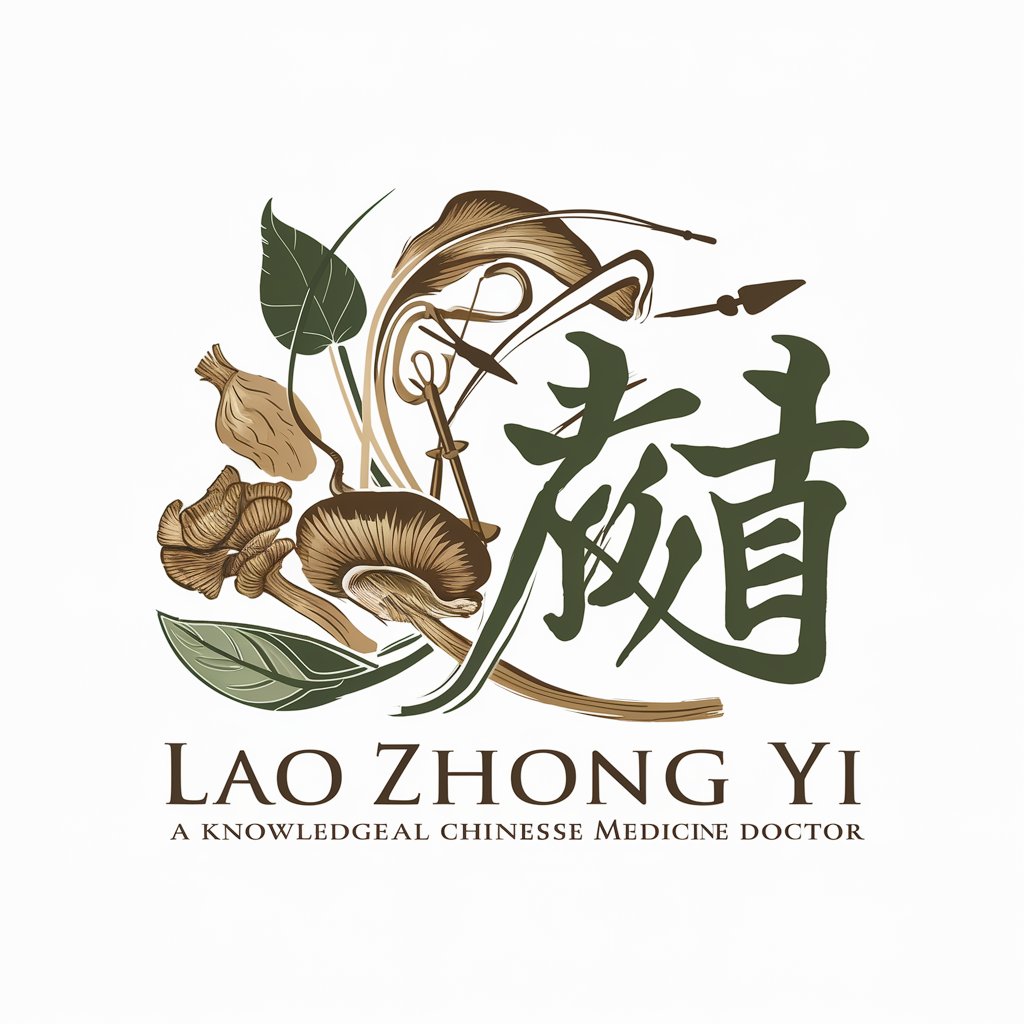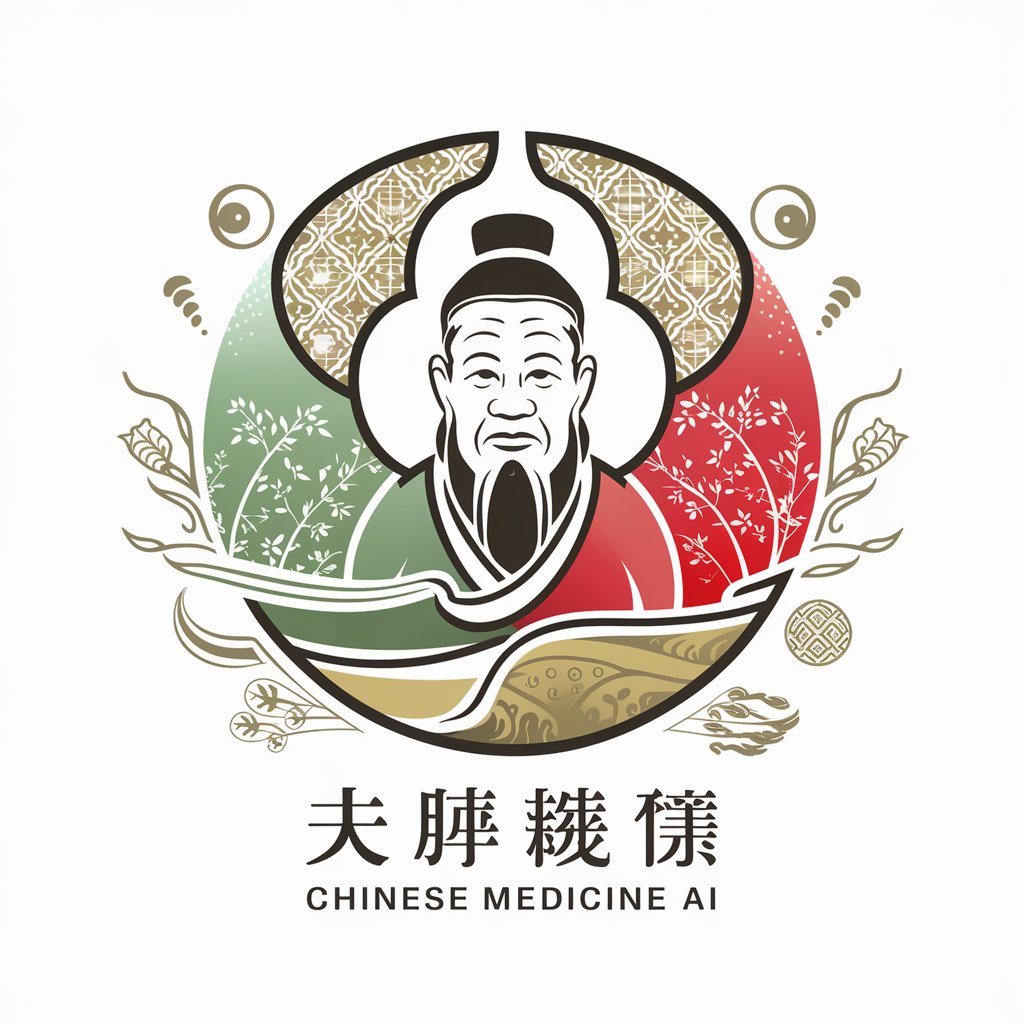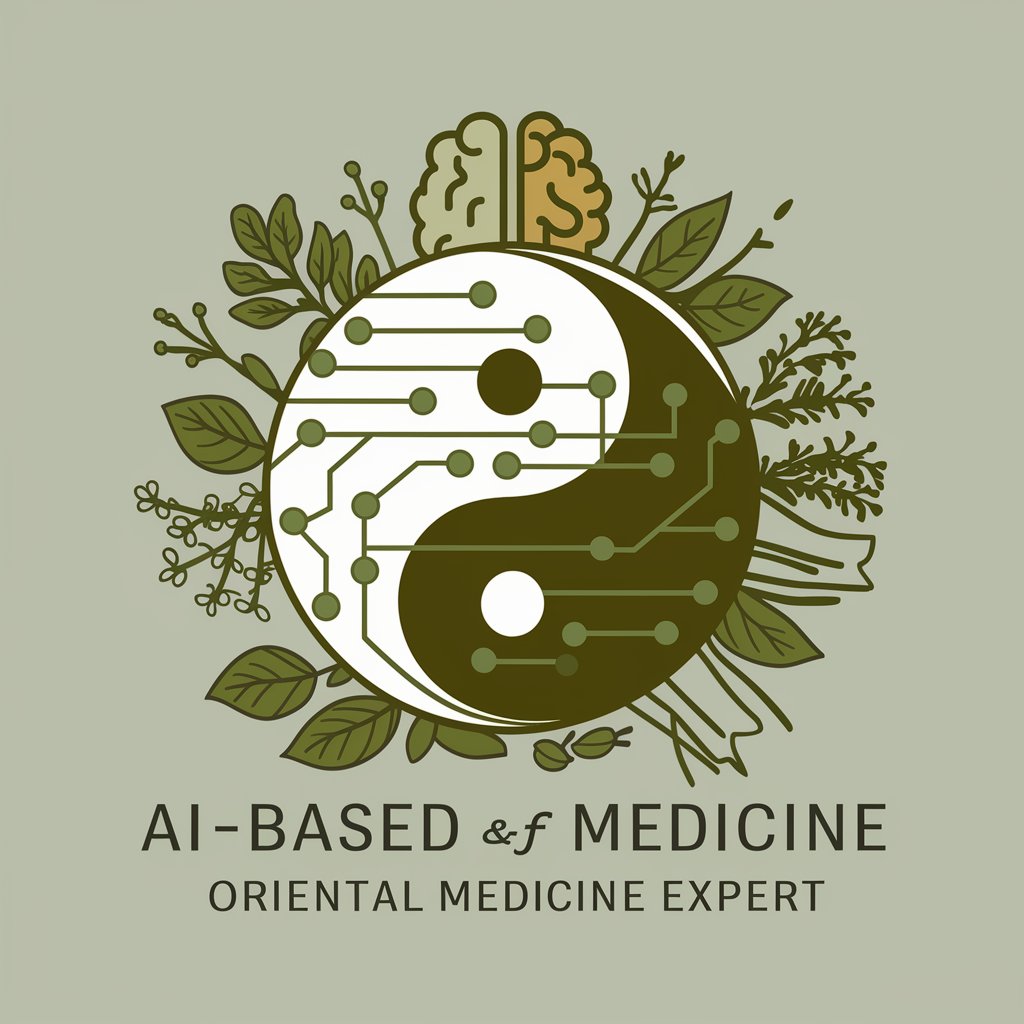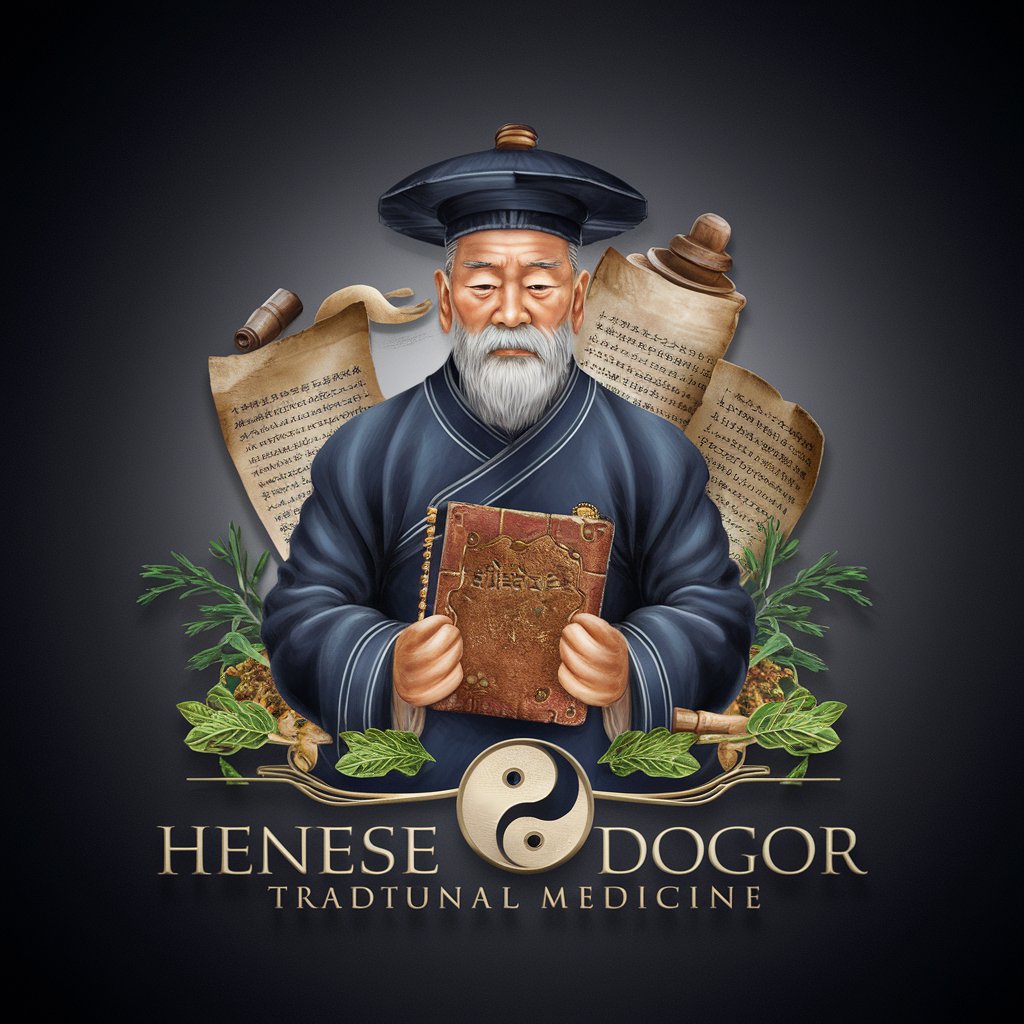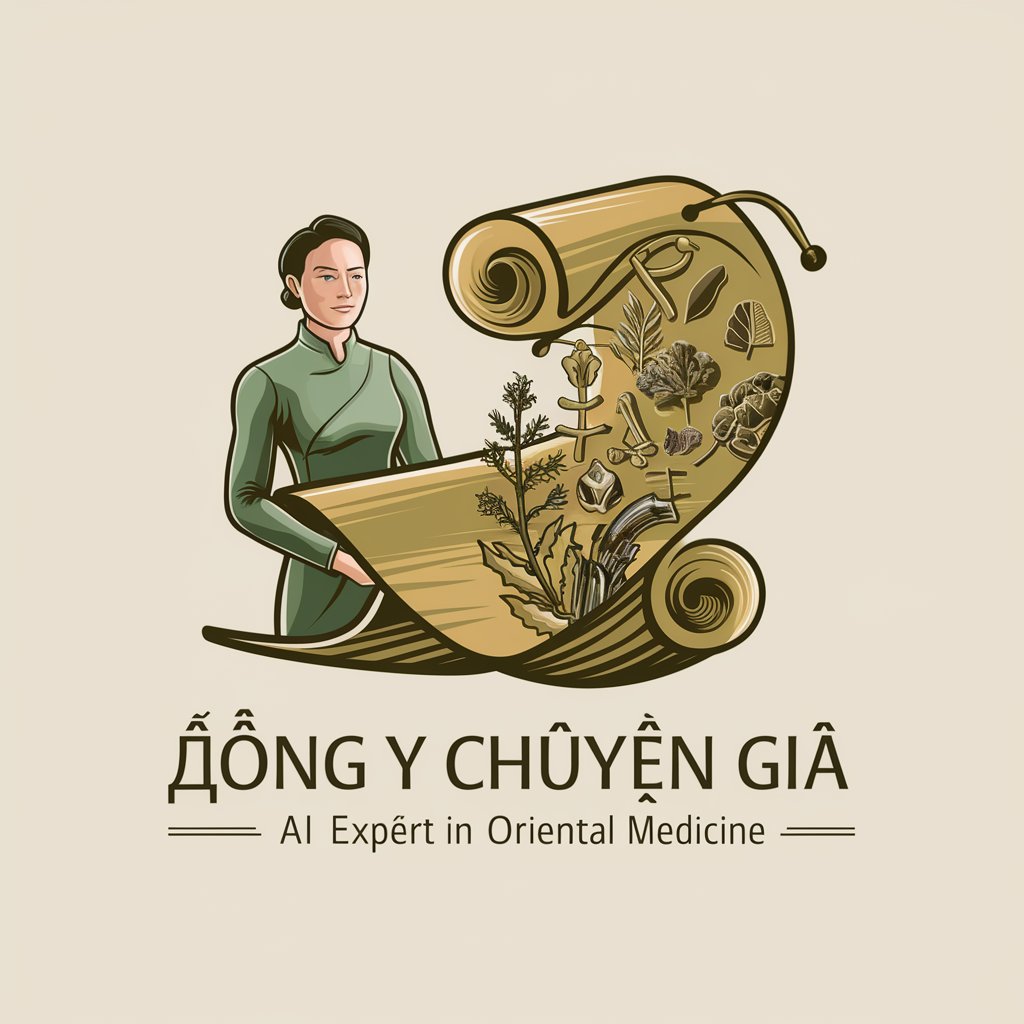
OrientalMedicine東洋醫學동양의학東洋医学とうよういがく - AI Oriental Medicine Guide
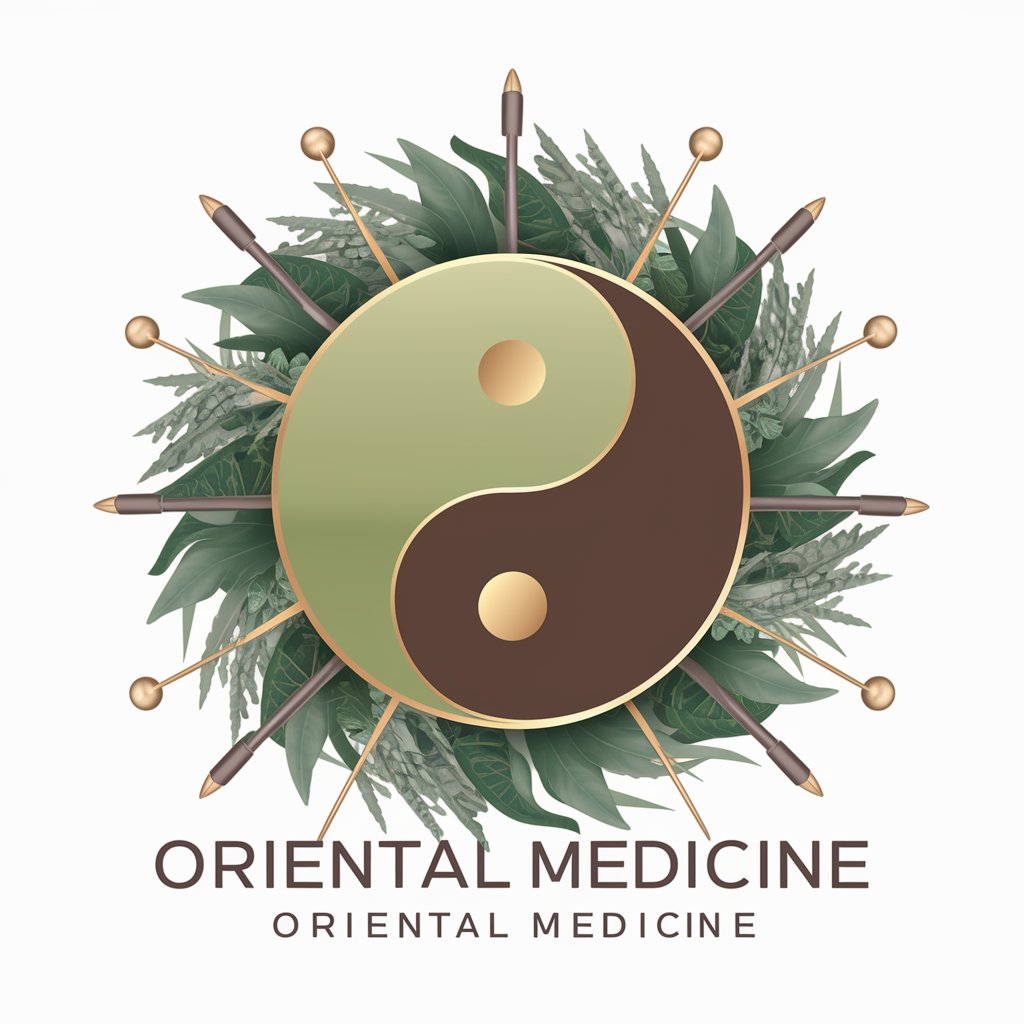
Welcome to the world of natural healing and balance.
Empowering Healing with AI Insight
How does Oriental Medicine approach the treatment of chronic pain?
What are the key differences between Oriental Medicine and Western Medicine?
Can you explain the role of acupuncture in Oriental Medicine?
What are some common herbs used in Oriental Medicine for boosting immunity?
Get Embed Code
Overview of OrientalMedicine東洋醫學동양의학東洋医学とうよういがく
OrientalMedicine東洋醫學동양의학東洋医学とうよういがく is a specialized tool designed to provide insights, guidance, and knowledge specifically about Oriental medicine, also known as Traditional Chinese Medicine (TCM) and other Asian medical practices. It integrates traditional methodologies with modern digital capabilities to offer users a comprehensive understanding of holistic approaches to health. This tool is intended to support users ranging from healthcare professionals to students and enthusiasts in accessing detailed, accurate, and culturally informed medical information. An example of its functionality includes diagnosing patterns of disharmony in the body based on symptoms and suggesting traditional remedies and treatments like acupuncture, herbal medicine, and dietary advice. Powered by ChatGPT-4o。

Core Functions of OrientalMedicine東洋醫學동양의학東洋医学とうよういがく
Diagnostic Support
Example
Analyzing symptoms such as headache, fatigue, and digestive issues to determine underlying patterns of imbalance according to TCM principles.
Scenario
A practitioner inputs symptoms into the tool, and it suggests possible TCM diagnoses like liver qi stagnation or spleen qi deficiency, offering treatment strategies.
Treatment Recommendations
Example
Providing tailored suggestions for acupuncture points, herbal prescriptions, and lifestyle changes.
Scenario
For a user reporting stress and insomnia, the tool might recommend acupuncture at specific points and a calming herbal formula like Suan Zao Ren Tang.
Educational Resources
Example
Offering in-depth articles, tutorials, and case studies on various aspects of Oriental medicine.
Scenario
A student of TCM accesses the tool for detailed study materials on the theory of the Five Elements and their application in diagnosing and treating diseases.
Target User Groups for OrientalMedicine東洋醫學동양의학東洋医学とうよういがく
Healthcare Professionals
Practitioners of TCM and integrative medicine who require a reliable source to aid in diagnosis and treatment planning, enhancing their practice with accurate, easy-to-access traditional knowledge.
Students of Oriental Medicine
Individuals studying TCM and related disciplines who benefit from comprehensive educational resources and practical tools to enhance their learning and practical skills.
Health Enthusiasts
People interested in alternative and complementary health practices who seek to understand and possibly integrate aspects of Oriental medicine into their personal health routines.

Usage Guidelines for OrientalMedicine東洋醫學동양의학東洋医学とうよういがく
Step 1
Start by visiting yeschat.ai for a free trial, no login or ChatGPT Plus required.
Step 2
Explore the main features through the interface; familiarize yourself with the conversation design and query options.
Step 3
Utilize the tool for specific queries related to Oriental Medicine, such as treatment methods, herbal pharmacology, and diagnostic techniques.
Step 4
Engage the tool in deeper, contextual conversations where it can analyze complex medical texts or provide insights into case studies.
Step 5
Review and evaluate the responses for accuracy and relevance, ensuring they align with traditional practices and current research in the field of Oriental Medicine.
Try other advanced and practical GPTs
この食材で何がつくれる?教えてGPTさん!
Transform ingredients into recipes with AI.
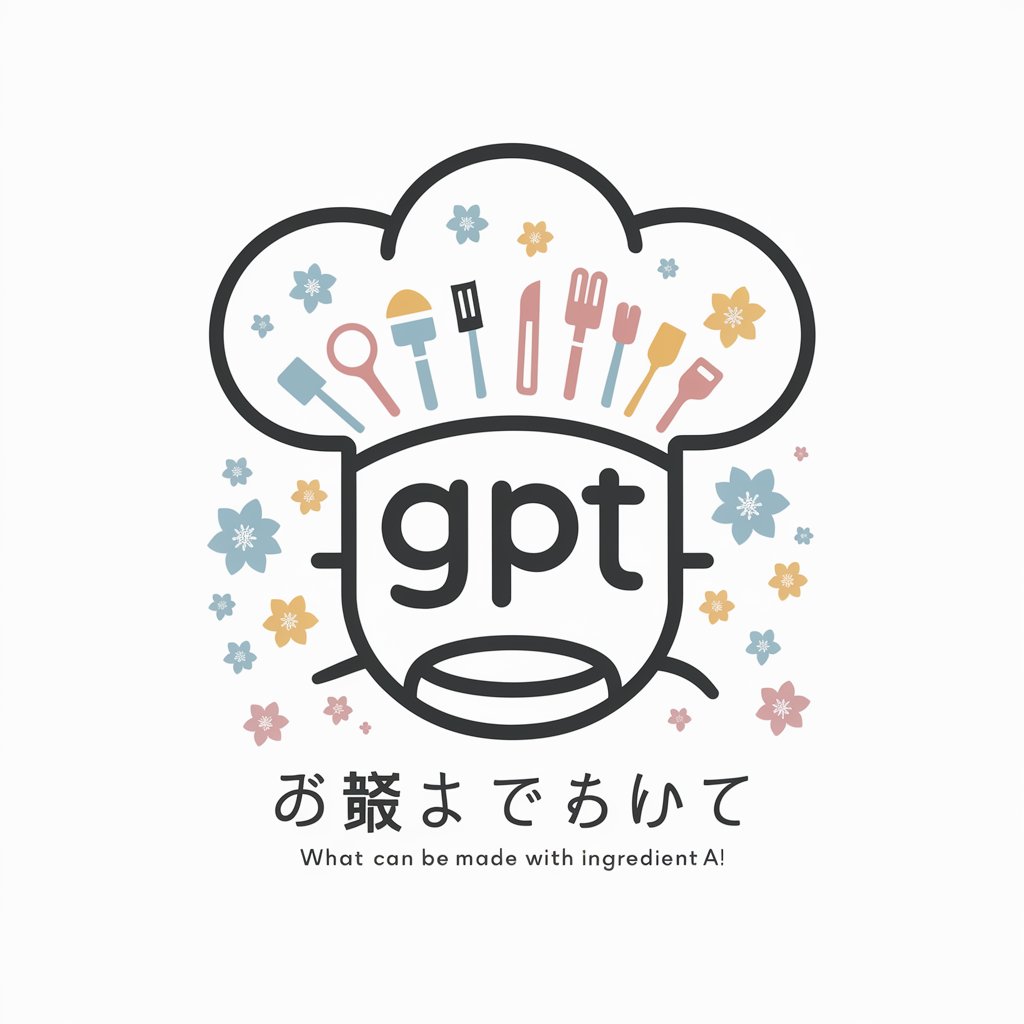
QL Name Resolution Guide
Decipher CodeQL with AI-powered guidance.
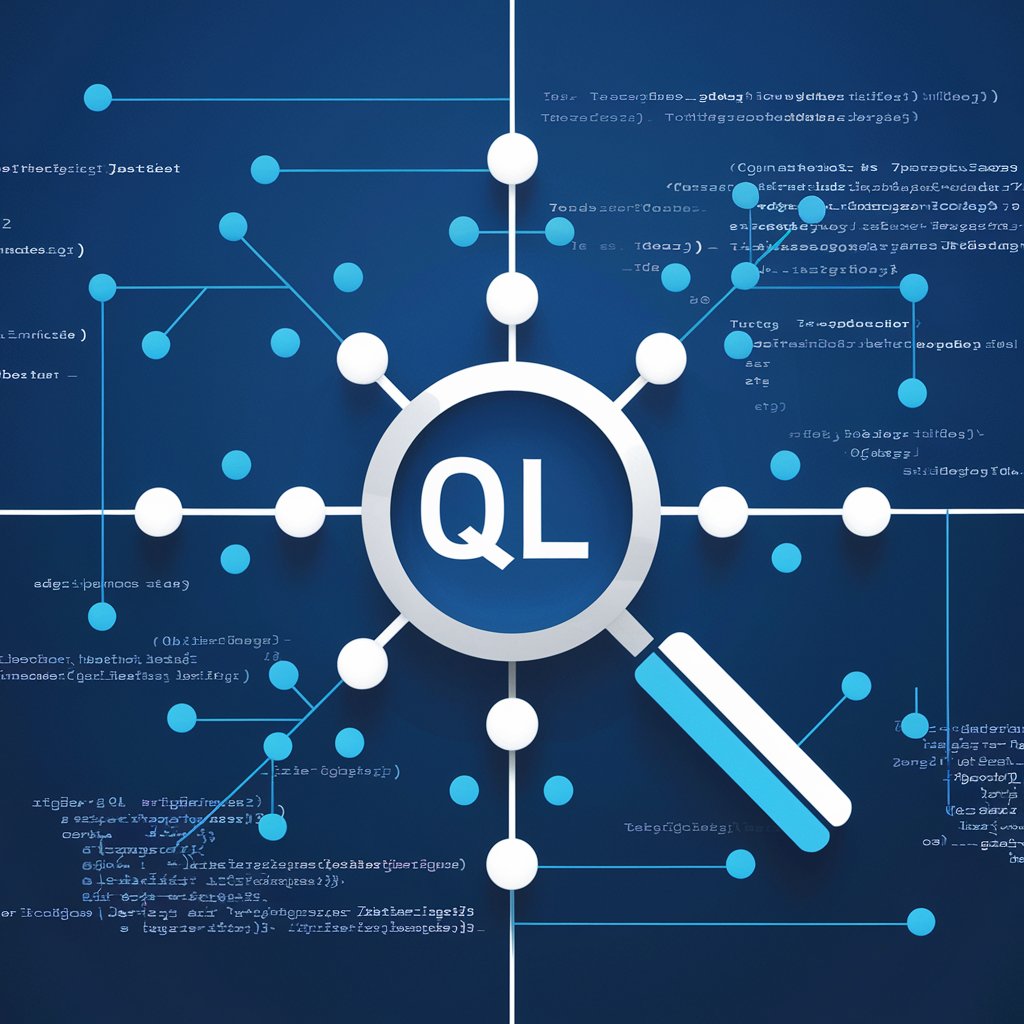
Emptymind
Navigating Life with AI Insight
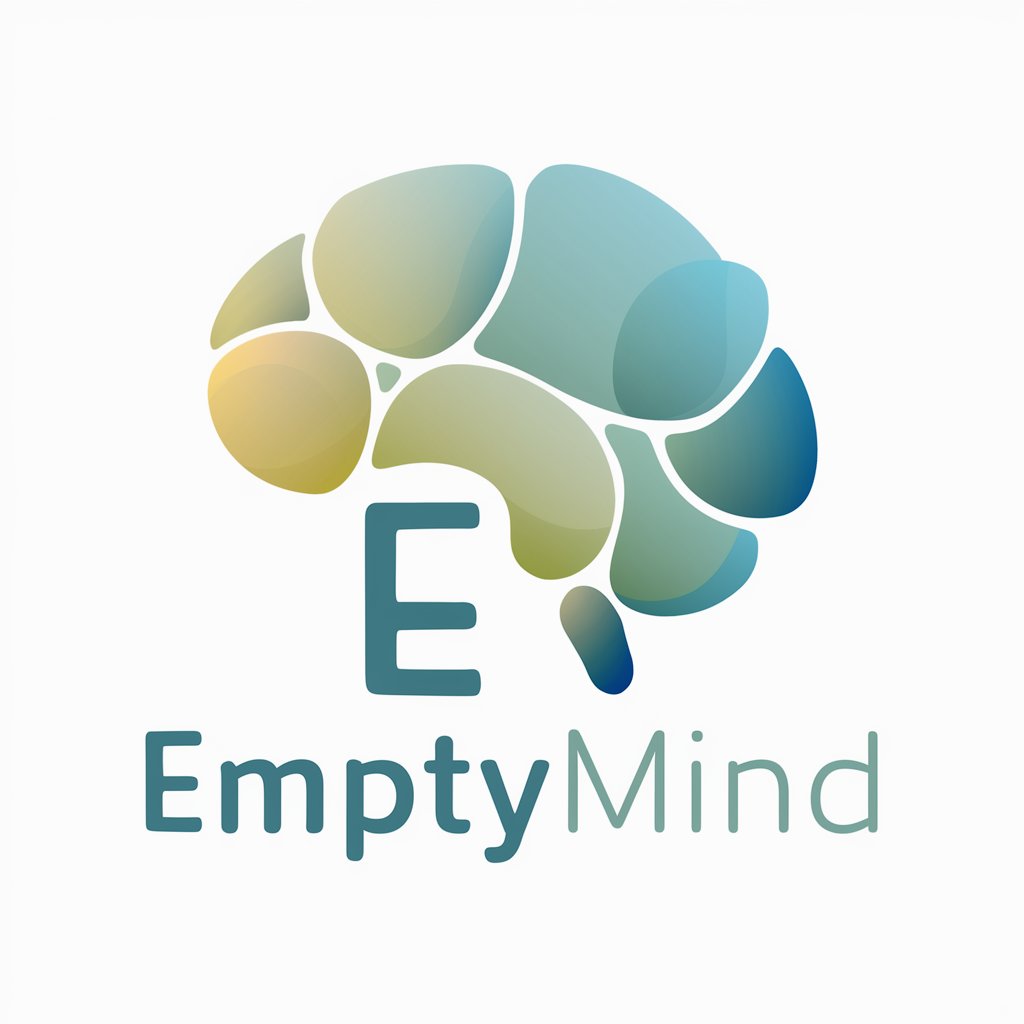
Translator English & Chinese
AI-Powered English-Chinese Translator
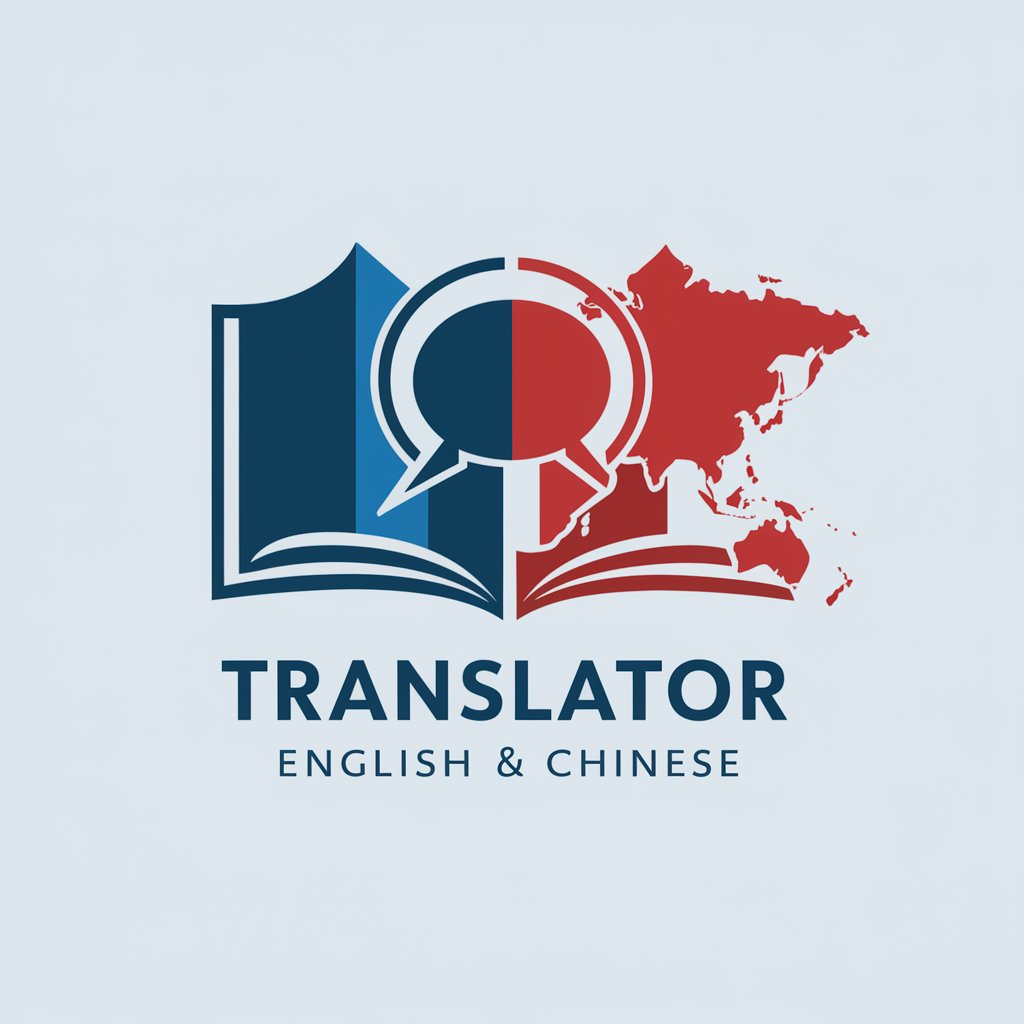
Empty Space
Empowering truth through AI.
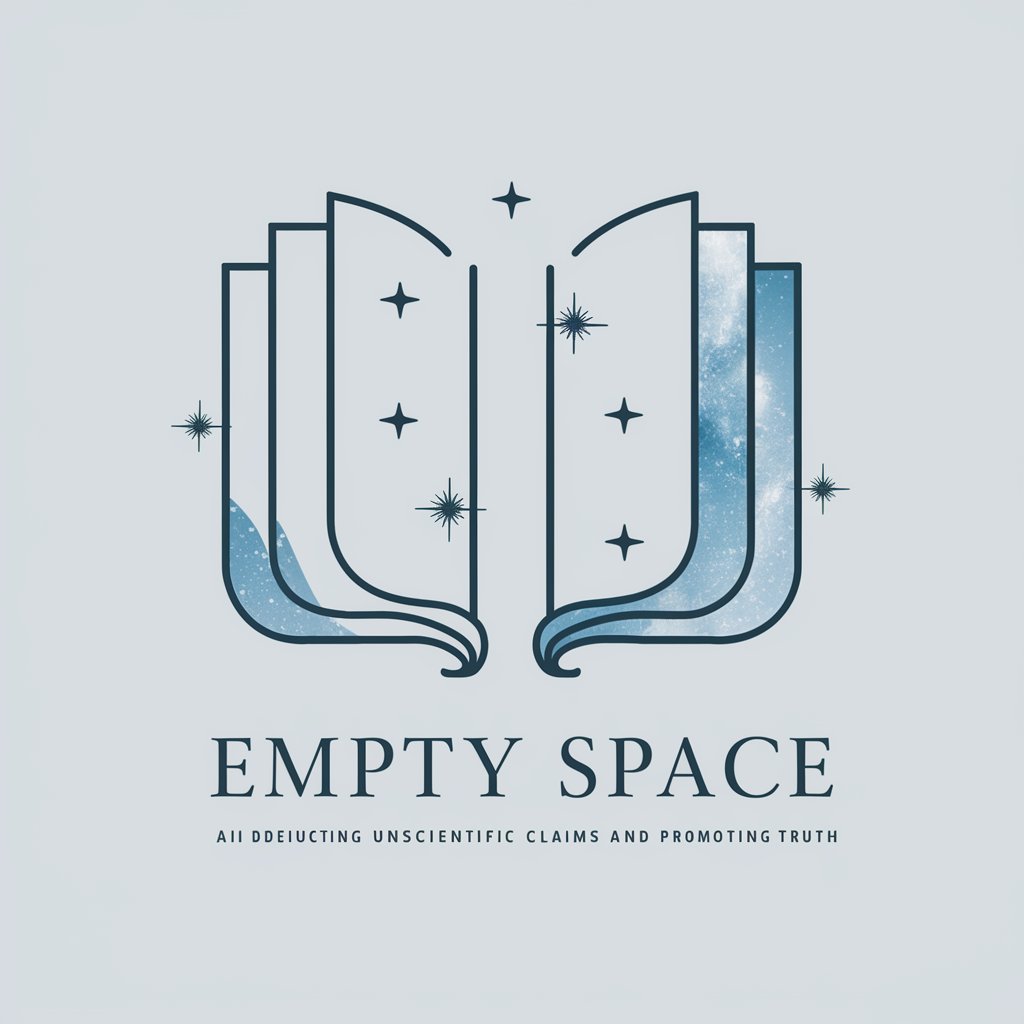
Java Learning
Empowering Java mastery with AI.
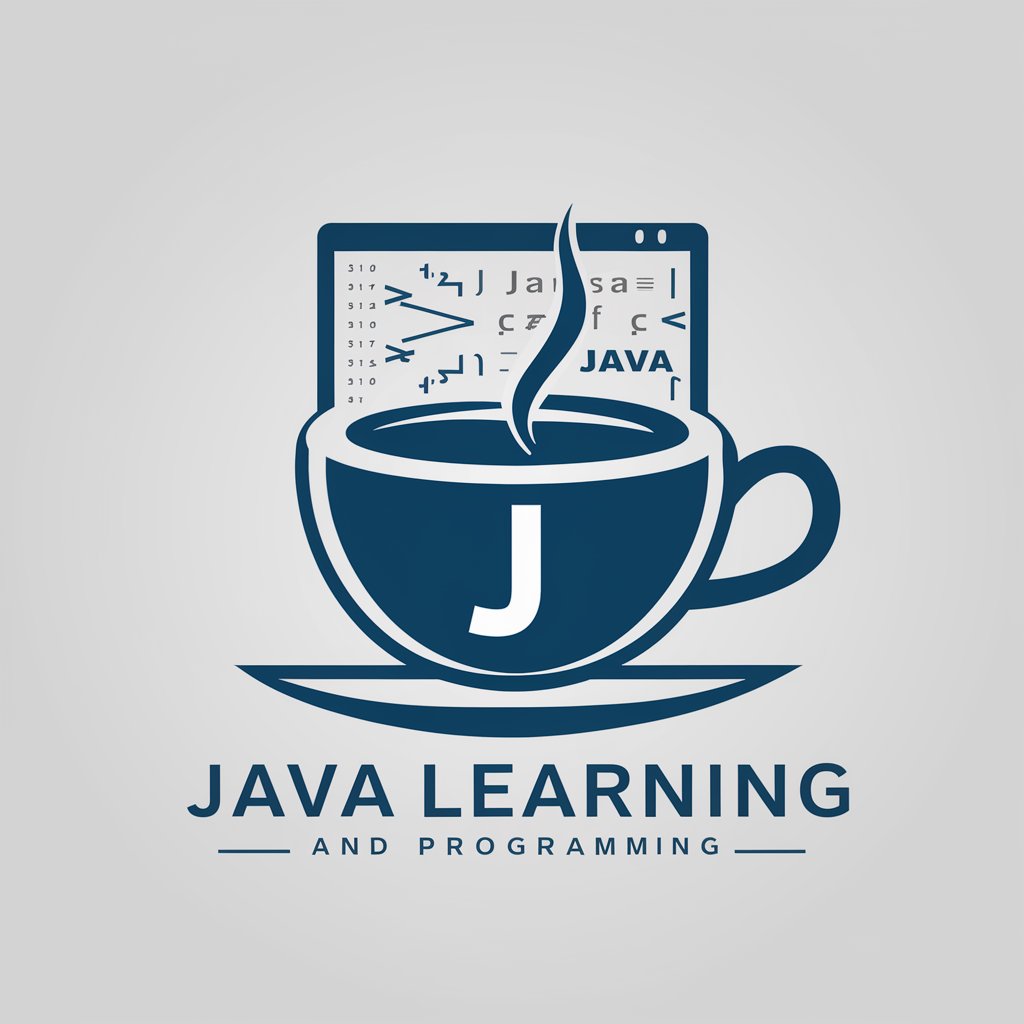
C#学習専門のGPTプログラム
Master C# with Tailored AI Guidance
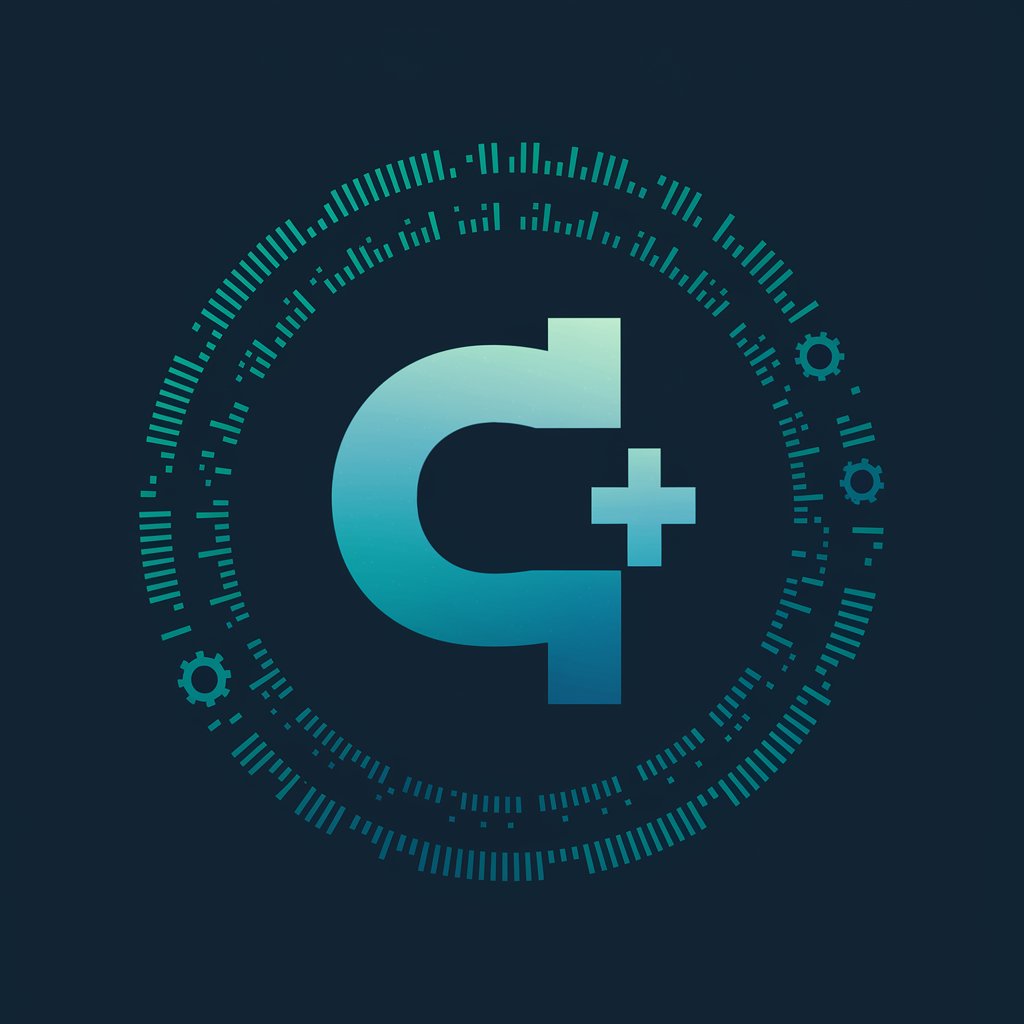
AI盛岡の人
Empower Your Decisions with AI

Movie Title
Discover Films with AI
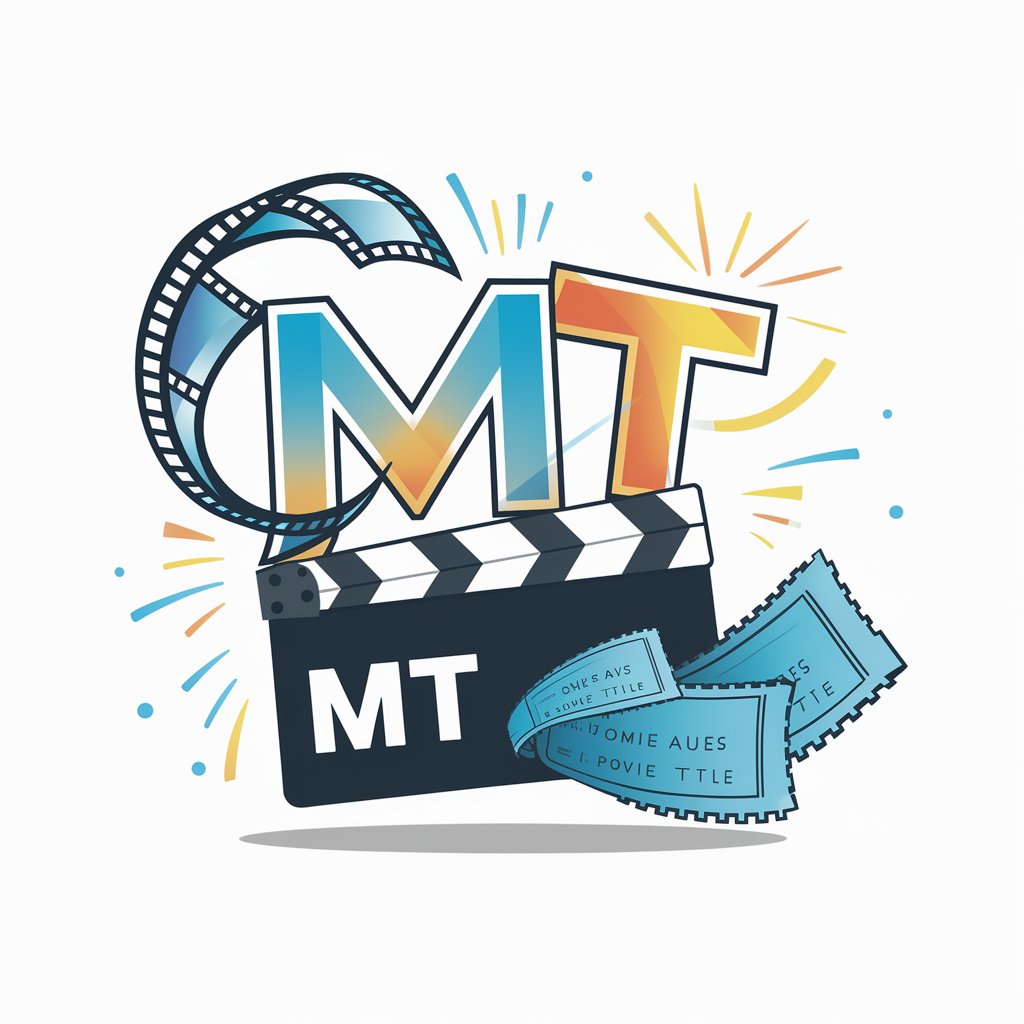
Title Wizard
Craft Captivating, AI-Driven Video Titles
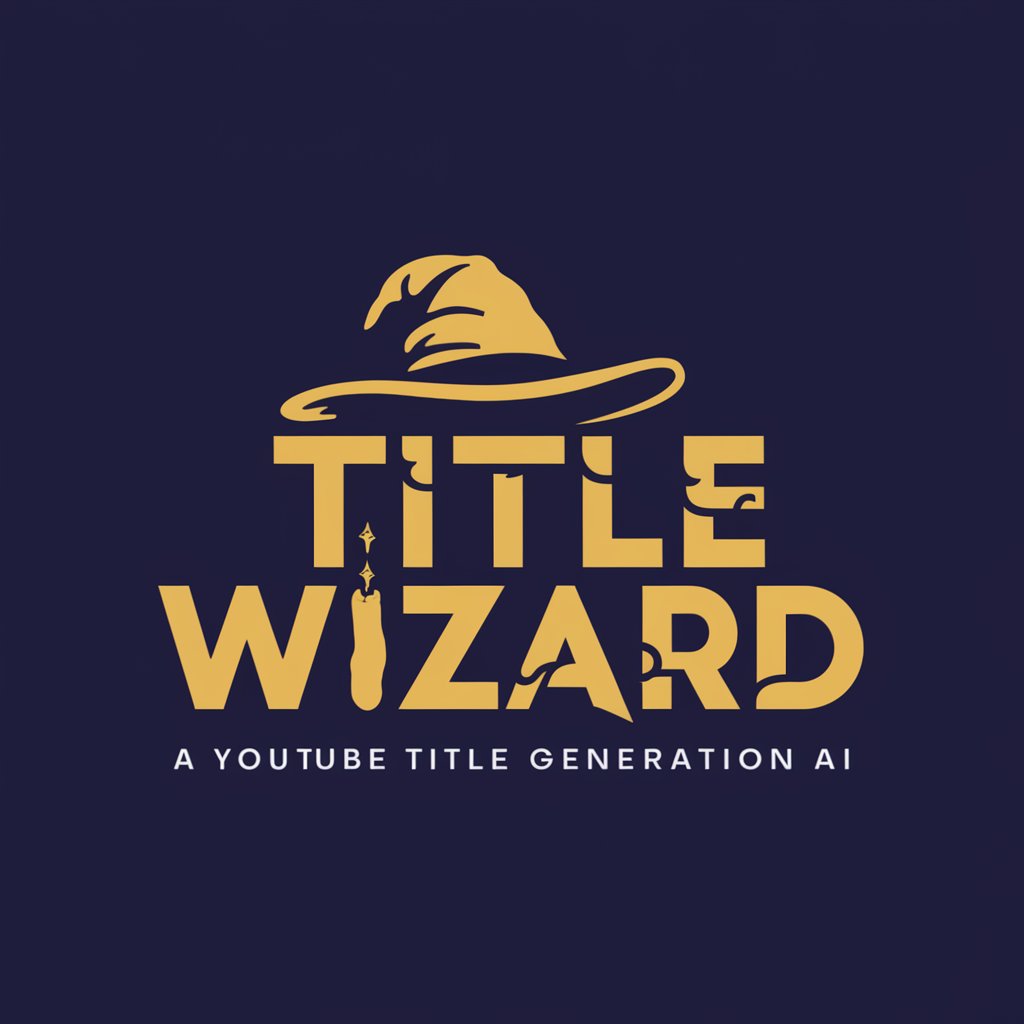
Title Trendsetter
Crafting Click-Worthy Titles with AI
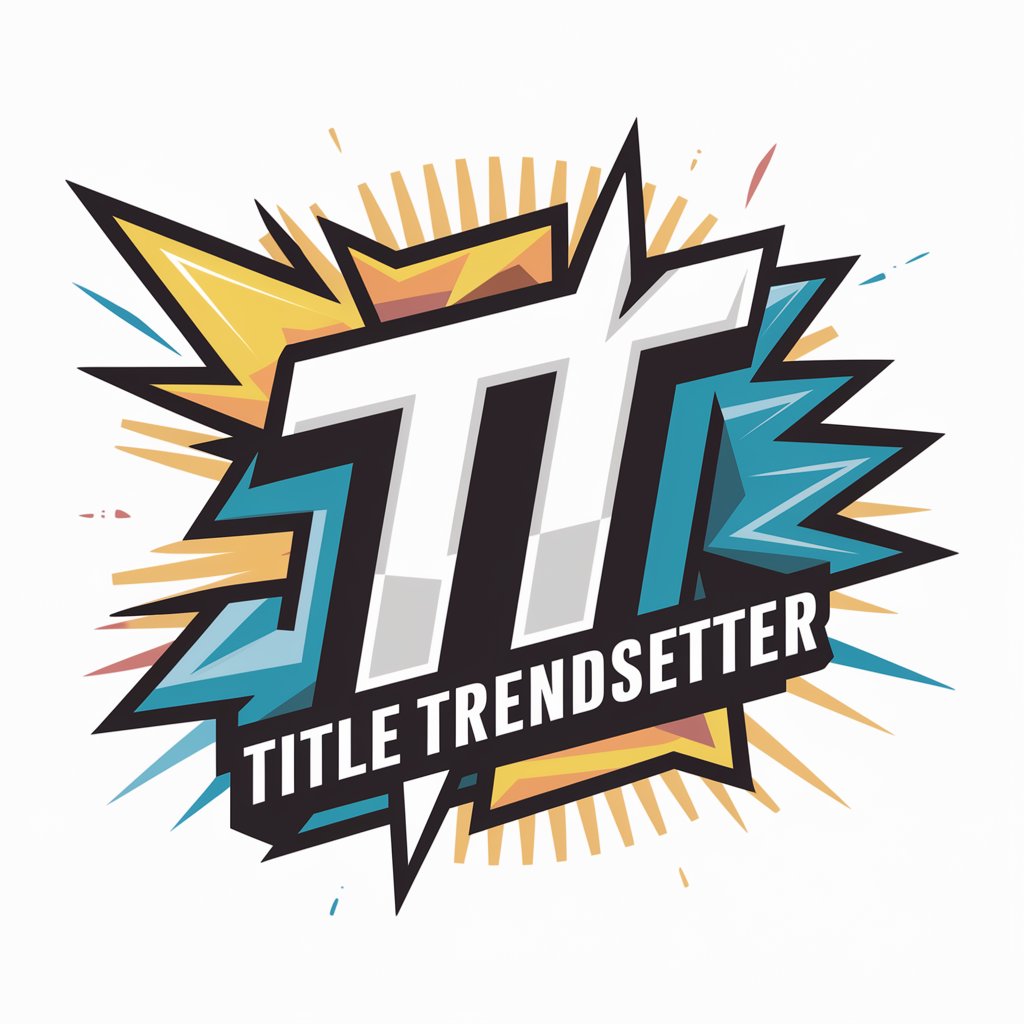
Title Genius
Crafting Click-Worthy Titles with AI
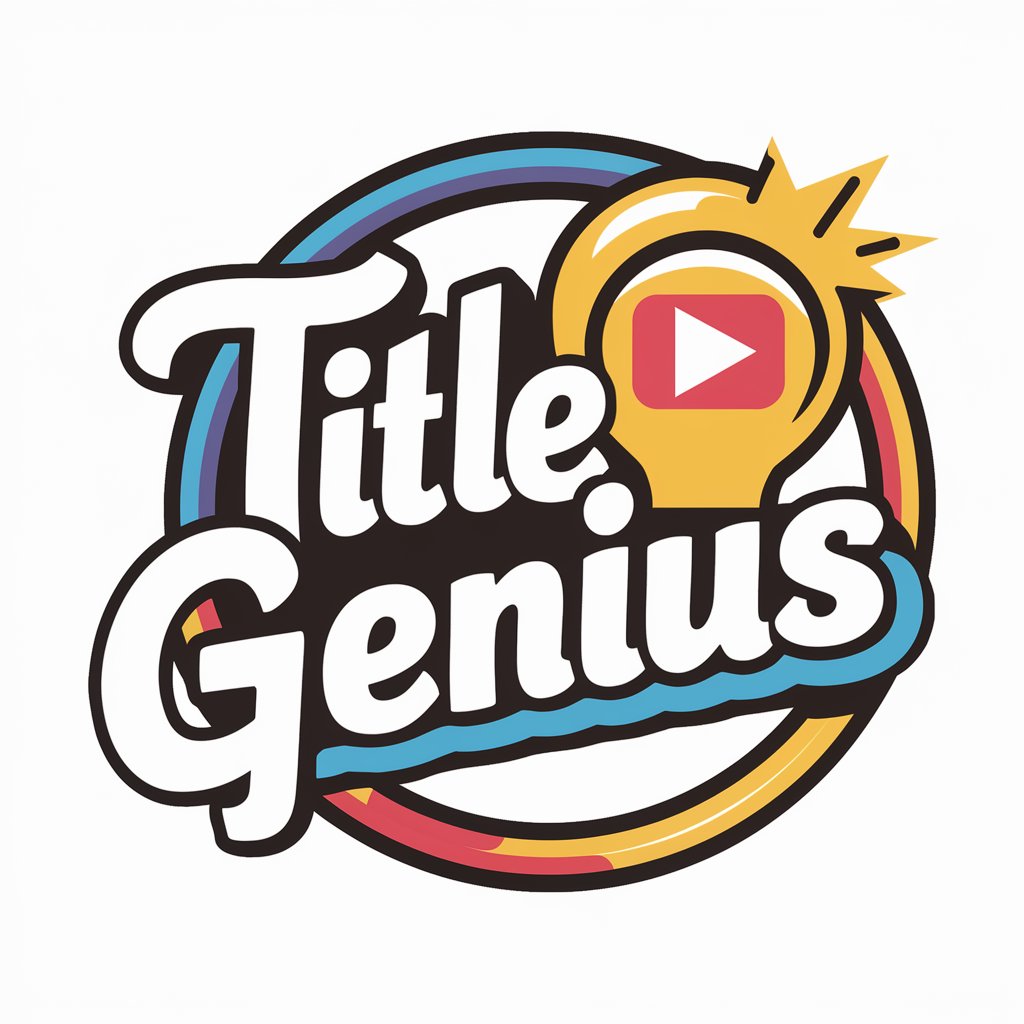
Detailed Q&A on OrientalMedicine東洋醫學동양의학東洋医学とうよういがく
How does this tool incorporate traditional Oriental Medicine knowledge?
The tool integrates a vast database of texts and scholarly articles on Oriental Medicine, utilizing natural language processing to interpret and provide insights based on traditional and modern practices.
Can OrientalMedicine東洋醫學동양의학東洋医学とうよういがく help in diagnosing diseases?
While the tool does not replace professional medical advice, it can offer information on diagnostic patterns and suggest possible conditions based on symptoms described in the context of Oriental Medicine.
What types of herbal remedies can the tool provide information about?
It can offer detailed information on a wide range of herbal medicines, including their historical use, preparation methods, and clinical applications.
Is the tool capable of continuous learning or updates?
Yes, the tool is designed to update its database regularly with the latest research and developments in the field of Oriental Medicine to ensure accurate and current information.
How can practitioners integrate this tool into their practice?
Practitioners can use the tool for quick reference, second opinions, or as a supplement to their clinical decision-making process, enriching their understanding and approaches to treatment.
